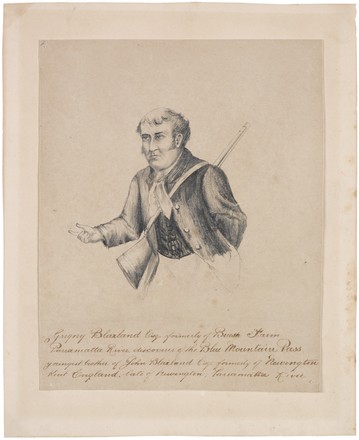
Gregory Blaxland
1807–20
ML 143
Pencil drawing
ML 143
Pencil drawing
Following the advice of family friend Sir Joseph Banks, English farmer and explorer Gregory Blaxland (1778 – 1853) and his brother John Blaxland (1769-1845) emigrated to Australia with their families in 1806. As one of the first wealthy and educated family's to settle in New South Wales, the government promised them a generous grant of land, convict slaves and free passage.
Soon after their arrival in the colony, Gregory became notorious for his demanding nature and sense of entitlement. His commercial interests and frequent requests for more land brought him into opposition with authority, particularly with Governor William Bligh, who openly criticised his business activities and demands upon government assistance.
During his time in Australia, Gregory Blaxland was considered an ambitious, self-interested man, with a streak of discontent. Towards the end of his life, he suffered a series of losses, both personal and economic, and fell into depression. He committed suicide on January 1st 1853.


 Back to list
Back to list